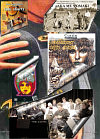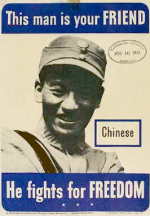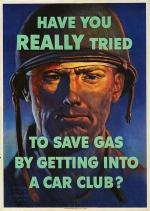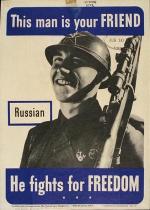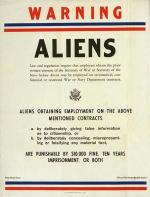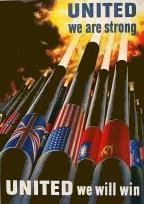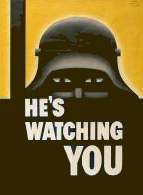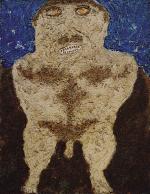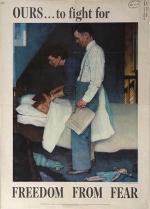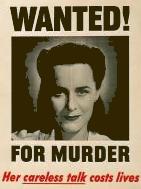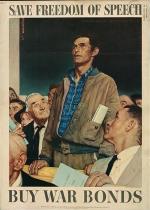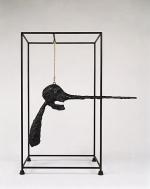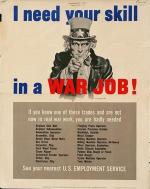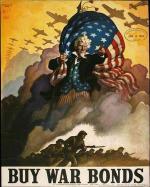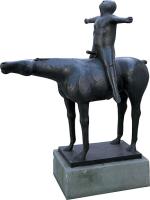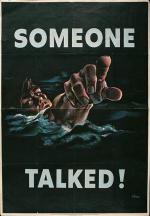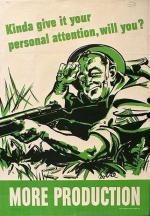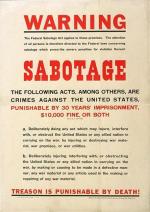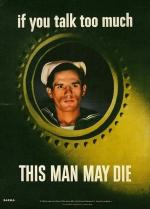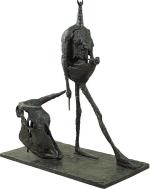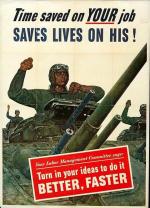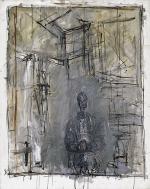Alexandria Virtual Cultural Centre of WA
1900 – 2000
1900
Hurricane ravages Galveston, Tex.; 6,000–8,000 dead. Fauvist movement in painting begins, led by Henri Matisse. Sigmund Freud's The Interpretation of Dreams.Carrie Chapman Catt succeeds Susan B. Anthony as president of National Woman Suffrage Association.
1901
Queen Victoria dies, and is succeeded by her son, Edward VII. As President McKinley begins second term, he is shot fatally by anarchist Leon Czolgosz. Theodore Roosevelt sworn in as successor.
1902
Enrico Caruso's first gramophone recording. Aswan Dam completed.
1903
Wright brothers, Orville and Wilbur, fly first powered, controlled, heavier-than-air plane at Kitty Hawk, N.C. Henry Ford organises Ford Motor Company. The Boston Red Sox win the first World Series against the Pittsburgh Pirates. W.E.B. Du Bois publishes The Souls of Black Folk.
1904
Russo-Japanese War begins - competition for Korea and Manchuria. Entente Cordiale: Britain and France settle their international differences. General theory of radioactivity by Rutherford and Soddy. New York City subway opens.
1905
In Russo-Japanese War, Port Arthur surrenders to Japanese; Russia suffers other defeats. President Roosevelt mediates Treaty of Portsmouth, N.H., which recognizes Japan's control of Korea and restores southern Manchuria to China. The Russian Revolution of 1905 begins on “Bloody Sunday” when troops fire onto a defenseless group of demonstrators in St. Petersburg. Strikes and riots follow. Sailors on battleship Potemkin mutiny; reforms, including first Duma (parliament), established by Czar Nicholas II's ”October Manifesto.” Albert Einstein's special theory of relativity and other key theories in physics. Franz Lehar's Merry Widow.
1906
San Francisco earthquake and three-day fire; more than 500 dead. Roald Amundsen, Norwegian explorer, fixes magnetic North Pole.
1907
Second Hague Peace Conference, of 46 nations, adopts 10 conventions on rules of war. Financial panic of 1907 in U.S. Mahler begins work on ”Song of the Earth.” Oklahoma becomes 46th state. Picasso's Les Demoiselles d'Avignon introduces cubism.
1908
Earthquake kills 150,000 in southern Italy and Sicily. U.S. Supreme Court, in Danbury Hatters' case, outlaws secondary union boycotts. Model T produced by Ford Motor Company.
1909
North Pole reportedly reached by American explorers Robert E. Peary and Matthew Henson. The National Association for the Advancement of Colored People is founded in New York by prominent black and white intellectuals and led by W.E.B. Du Bois.
"1900 %u2013 1909 World History." Infoplease.
© 2000 - 2005 Pearson Education, publishing as Infoplease.
16 Apr. 2005 <http://www.infoplease.com/ipa/A0005245.html >
1910
Boy Scouts of America incorporated. Angel Island, in San Francisco Bay, becomes immigration centre for Asians entering U.S.
1911
First use of aircraft as offensive weapon in Turkish-Italian War. Italy defeats Turks and annexes Tripoli and Libya. Chinese Republic proclaimed after revolution overthrows Manchu dynasty. Sun Yat-sen named president. Mexican Revolution: Porfirio Diaz, president since 1877, replaced by Francisco Madero. Triangle Shirtwaist Company fire in New York; 146 killed. Amundsen reaches South Pole. Ernest Rutherford discovers the structure of the atom. Richard Strauss's Der Rosenkavalier. Irving Berlin's Alexander's Ragtime Band.
1912
Balkan Wars (1912 - 1913) resulting from territorial disputes: Turkey defeated by alliance of Bulgaria, Serbia, Greece, and Montenegro; London peace treaty (1913) partitions most of European Turkey among the victors. In second war (1913), Bulgaria attacks Serbia and Greece and is defeated after Romania intervenes and Turks recapture Adrianople. Titanic sinks on maiden voyage; over 1,500 drown. New Mexico and Arizona admitted as states.
1913
Suffragists demonstrate in London. Garment workers strike in New York and Boston; win pay raise and shorter hours. Henry Ford develops first moving assembly line. 16th Amendment (income tax) and 17th (popular election of U.S. senators) adopted. Bill creating U.S. Federal Reserve System becomes law. Stravinsky's The Rite of Spring.Woodrow Wilson becomes 28th U.S. president. Armory Show introduces modern art to U.S.; Duchamp's Nude Descending a Staircase shocks public.
1914
World War I begins: Austrian Archduke Francis Ferdinand and wife Sophie are assassinatedin Sarajevo by Serbian nationalist, Gavrilo Princip (June 28). Austria declares war on Serbia (July 28). Germany declares war on Russia (Aug. 1), on France (Aug. 3), invades Belgium (Aug. 4). Britain declares war on Germany (Aug. 4). (For detailed chronology see, World War I.) Panama Canal officially opened. Congress sets up Federal Trade Commission, passes Clayton Antitrust Act. U.S. Marines occupy Veracruz, Mexico, intervening in civil war to protect American interests.
1915
Lusitania sunk by German submarine. Second Battle of Ypres. U.S. banks lend $500 million to France and Britain. Genocide of estimated 600,000 to 1 million Armenians by Turkish soldiers. D. W. Griffith's film Birth of a Nation.Albert Einstein's General Theory of Relativity.
1916
Congress expands armed forces. Battle of Verdun. Battle of the Somme. Tom Mooney arrested for San Francisco bombing (pardoned in 1939). Pershing fails in raid into Mexico in quest of rebel Pancho Villa. U.S. buys Virgin Islands from Denmark for $25 million. President Wilson re-elected with “he kept us out of war” slogan. ”Black Tom” explosion at munitions dock in Jersey City, N.J., $40,000,000 damages; traced to German saboteurs. Margaret Sanger opens first birth control clinic. Easter Rebellion in Ireland put down by British troops. Jeannette Rankin becomes first woman elected to Congress.
1917
First U.S. combat troops in France as U.S. declares war on Germany (April 6). Third Battle of Ypres. Russian Revolution of 1917—climax of long unrest under czars. February Revolution - Nicholas II forced to abdicate, liberal government created. Kerensky becomes prime minister and forms provisional government (July). In October Revolution, Bolsheviks seize power in armed coup d'état led by Lenin and Trotsky. Kerensky flees. Balfour Declaration promises Jewish homeland in Palestine. U.S. declares war on Austria-Hungary (Dec. 7). Armistice between new Russian Bolshevik government and Germans (Dec. 15).Sigmund Freud's Introduction to Psychoanalysis.
1918
Russian revolutionaries execute the former czar and his family. Russian Civil War between Reds (Bolsheviks) and Whites (anti-Bolsheviks); Reds win in 1920. Allied troops (U.S., British, French) intervene (March); leave in 1919. Second Battle of the Marne (July - Aug.) German Kaiser abdicates (Nov.); hostilities cease on the Western Front. Japanese hold Vladivostok until 1922. Worldwide influenza epidemic strikes; by 1920, nearly 20 million are dead. In U.S. alone, 500,000 perish.
1919
Third International (Comintern) establishes Soviet control over international Communist movements. Paris peace conference. Versailles Treaty, incorporating Woodrow Wilson's draft Covenant of League of Nations, signed by Allies and Germany; rejected by U.S. Senate. Congress formally ends war in 1921. 18th (Prohibition) Amendment adopted. Alcock and Brown make first transatlantic non stop flight. Mahatma Gandhi initiates satyagraha (“truth force”) campaigns, beginning his non violent resistance movement against British rule in India.
"1910 %u2013 1919 World History." Infoplease.
© 2000-2005 Pearson Education, publishing as Infoplease.
16 Apr. 2005 <http://www.infoplease.com/ipa/A0005246.html>
1920
League of Nations holds first meeting at Geneva, Switzerland. U.S. Dept. of Justice ”red hunt” nets thousands of radicals; aliens deported. Women's suffrage (19th) amendment ratified. Treaty of Sèvres dissolves Ottoman Empire. First Agatha Christie mystery. Sinclair Lewis's Main Street.
1921
Reparations Commission fixes German liability at 132 billion gold marks. German inflation begins. Major treaties signed at Washington Disarmament Conference limit naval tonnage and pledge to respect territorial integrity of China. In U.S., Nicola Sacco and Bartolomeo Vanzetti, Italian-born anarchists, convicted of armed robbery murder; case stirs world wide protests; they are executed in 1927.
1922
Mussolini marches on Rome; forms Fascist government. Irish Free State, a self-governing dominion of British Empire, officially proclaimed. Kemal Atatürk, founder of modern Turkey, overthrows last sultan. James Joyce's Ulysses.
1923
Adolf Hitler's ”Beer Hall Putsch” in Munich fails; in 1924 he is sentenced to five years in prison where he writes Mein Kampf; released after eight months. Occupation of Ruhr by French and Belgian troops to enforce reparations payments. Widespread Ku Klux Klan violence in U.S. Earthquake destroys third of Tokyo. George Gershwin's Rhapsody in Blue.Bessie Smith, known as ”the Empress of the Blues,” makes her first record. Irish poet William Butler Yeats wins Nobel Prize in Literature.
1924
Death of Lenin; Stalin wins power struggle, rules as Soviet dictator until death in 1953. Italian Fascists murder Socialist leader Giacomo Matteotti. Interior Secretary Albert B. Fall and oilmen Harry Sinclair and Edward L. Doheny are charged with conspiracy and bribery in the Teapot Dome scandal, involving fraudulent leases of naval oil reserves. In 1931, Fall is sentenced to year in prison; Doheny and Sinclair acquitted of bribery. Nathan Leopold and Richard Loeb convicted in “thrill killing” of Bobby Franks in Chicago; defended by Clarence Darrow; sentenced to life imprisonment. (Loeb killed by fellow convict in 1936; Leopold paroled in 1958, dies in 1971.) Robert Frost wins first of four Pulitzers.
1925
Nellie Tayloe Ross elected governor of Wyoming; first woman governor elected in U.S. Locarno conferences seek to secure European peace by mutual guarantees. John T. Scopes convicted and fined for teaching evolution in a public school in Tennessee “Monkey Trial”; sentence set aside. John Logie Baird, Scottish inventor, transmits human features by television. Hitler publishes Volume I of Mein Kampf.
1926
General strike in Britain brings nation's activities to standstill. U.S. marines dispatched to Nicaragua during revolt; they remain until 1933.Gertrude Ederle of U.S. is first woman to swim English Channel. Ernest Hemingway's The Sun Also Rises.
1927
German economy collapses. Socialists riot in Vienna; general strike follows acquittal of Nazis for political murder. Trotsky expelled from Russian Communist Party. Charles A. Lindbergh flies first successful solo non stop flight from New York to Paris. Ruth Snyder and Judd Gray convicted of murder of Albert Snyder; they are executed at Sing Sing prison in 1928. Philo T. Farnsworth demonstrates working television model. Georges Lemaître proposes Big Bang Theory. Babe Ruth hits 60 home runs in the season; record stands for next 34 years. The Jazz Singer, with Al Jolson, first part-talking motion picture.
1928
Kellogg-Briand Pact, outlawing war, signed in Paris by 65 nations. Alexander Fleming discovers penicillin. Richard E. Byrd starts expedition to Antarctic; returns in 1930. Anthropologist Margaret Mead publishes Coming of Age in Samoa. Oxford English Dictionary published after 44 years of research.
1929
Trotsky expelled from USSR Lateran Treaty establishes independent Vatican City. In U.S., stock market prices collapse, with U.S. securities losing $26 billion - first phase of Depression and world economic crisis. St. Valentine's Day gangland massacre in Chicago. Edwin Powell Hubble proposes theory of expanding universe.
"1920 %u2013 1929 World History." Infoplease.
© 2000-2005 Pearson Education, publishing as Infoplease.
16 Apr. 2005 <http://www.infoplease.com/ipa/A0005247.html>
1930
Britain, U.S., Japan, France, and Italy sign naval disarmament treaty. Nazis gain in German elections. Cyclotron developed by Ernest O. Lawrence, U.S. physicist. Pluto discovered by astronomers.
1931
Spain becomes a republic with overthrow of King Alfonso XIII. German industrialists finance 800,000-strong Nazi party. British parliament enacts statute of Westminster, legalising dominion equality with Britain. Mukden Incident begins Japanese occupation of Manchuria. In U.S., Hoover proposes one-year moratorium of war debts. Harold C. Urey discovers heavy hydrogen. Gangster Al Capone sentenced to 11 years in prison for tax evasion (freed in 1939; dies in 1947). Notorious Scottsboro trial begins, exposing depth of Southern racism. “The Star Spangled Banner” officially becomes national anthem.
1932
Nazis lead in German elections with 230 Reichstag seats. Famine in USSR. In U.S., Congress sets up Reconstruction Finance Corporation to stimulate economy. Veterans march on Washington - most leave after Senate rejects payment of cash bonuses; others removed by troops under Douglas MacArthur. U.S. protests Japanese aggression in Manchuria. Amelia Earhart is first woman to fly Atlantic solo. Charles A. Lindbergh's baby son kidnapped, killed. (Bruno Richard Hauptmann arrested in 1934, convicted in 1935, executed in 1936.)
1933
Hitler appointed German chancellor, gets dictatorial powers. Reichstag fire in Berlin; Nazi terror begins. Germany and Japan withdraw from League of Nations. Giuseppe Zangara executed for attempted assassination of president-elect Roosevelt in which Chicago mayor Cermak is fatally shot. Roosevelt inaugurated (“the only thing we have to fear is fear itself”); launches New Deal. Prohibition repealed. USSR recognised by U.S.
1934
Chancellor Dollfuss of Austria assassinated by Nazis. Hitler becomes führer. USSR admitted to League of Nations. Dionne sisters, first quintuplets to survive beyond infancy, born in Canada. Mao Zedong begins the Long March north with 100,000 soldiers.
1935
Saar incorporated into Germany after plebiscite. Nazis repudiate Versailles Treaty, introduce compulsory military service. Mussolini invades Ethiopia; League of Nations invokes sanctions. Roosevelt opens second phase of New Deal in U.S., calling for social security, better housing, equitable taxation, and farm assistance. Huey Long assassinated in Louisiana.
1936
Germans occupy Rhineland. Italy annexes Ethiopia. Rome-Berlin Axis proclaimed (Japan to join in 1940). Trotsky exiled to Mexico. King George V dies; succeeded by son, Edward VIII, who soon abdicates to marry an American-born divorcée, and is succeeded by brother, George VI. Spanish civil war begins. Hundreds of Americans join the ”Lincoln Brigades.” (Franco's fascist forces defeat Loyalist forces by 1939, when Madrid falls.) War between China and Japan begins, to continue through World War II. Japan and Germany sign anti-Comintern pact; joined by Italy in 1937.
1937
Hitler repudiates war guilt clause of Versailles Treaty; continues to build German power. Italy withdraws from League of Nations. U.S. gunboat Panay sunk by Japanese in Yangtze River. Japan invades China, conquers most of coastal area. Amelia Earhart lost somewhere in Pacific on round-the-world flight. Picasso's Guernica mural.
1938
Hitler marches into Austria; political and geographical union of Germany and Austria proclaimed. Munich Pact - Britain, France, and Italy agree to let Germany partition Czechoslovakia. Douglas ”Wrong-Way” Corrigan flies from New York to Dublin. Fair Labour Standards Act establishes minimum wage. Orson Welles's radio broadcast War of the Worlds.
1939
Germany invades Poland; occupies Bohemia and Moravia; renounces pact with England and concludes 10-year non-aggression pact with USSR. Russo-Finnish War begins; Finns to lose one-tenth of territory in 1940 peace treaty. World War II begins. (For detailed chronology, see World War II.) In U.S., Roosevelt submits $1,319 - million defence budget, proclaims U.S. neutrality, and declares limited emergency. Einstein writes FDR about feasibility of atomic bomb. New York World's Fair opens. DAR refuses to allow Marian Anderson to perform. Gone with the Wind premieres.
"1930 %u2013 1939 World History." Infoplease.
© 2000-2005 Pearson Education, publishing as Infoplease.
16 Apr. 2005 <http://www.infoplease.com/ipa/A0005248.html>.
1940
Hitler invades Norway, Denmark (April 9), the Netherlands, Belgium, Luxembourg (May 10), and France (May 12). Churchill becomes Britain's prime minister. Trotsky assassinated in Mexico (Aug. 20). Estonia, Latvia, and Lithuania annexed by USSR. U.S. trades 50 destroyers for leases on British bases in Western Hemisphere. Selective Service Act signed. The first official network television broadcast is put out by NBC.
1941
Germany attacks the Balkans and Russia. Japanese surprise attack on U.S. fleet at Pearl Harbor brings U.S. into World War II; U.S. and Britain declare war on Japan. Manhattan Project (atomic bomb research) begins. Roosevelt enunciates “four freedoms,” signs Lend-Lease Act, declares national emergency, promises aid to USSR. Orson Welles's Citizen Kane.
1942
Declaration of United Nations signed in Washington (Jan. 1). Nazi leaders attend Wannsee Conference to coordinate the ”final solution to the Jewish question,” the systematic genocide of Jews known as the Holocaust. (For detailed chronology of the Holocaust, see The Holocaust.) Women's military services established. Enrico Fermi achieves nuclear chain reaction. More than 120,000 Japanese and persons of Japanese ancestry living in western U.S. moved to ”relocation centers” some for the duration of the war (Executive Order 9066). Coconut Grove nightclub fire in Boston kills 492 (Nov. 28).
1943
Churchill and Roosevelt hold Casablanca Conference (Jan. 14 - 23). Mussolini deposed. President freezes prices, salaries, and wages to prevent inflation. Income tax withholding introduced.
1944
Allies invade Normandy on D-Day (June 6). G.I. Bill of Rights enacted. Bretton Woods Conference creates International Monetary Fund and World Bank (July 1-22). Dumbarton Oaks Conference - U.S., British Commonwealth, and USSR propose establishment of United Nations (Aug. 21 - Oct. 7). Battle of the Bulge (Dec. 16). Gunnar Myrdal's An American Dilemma.
1945
Yalta Conference (Roosevelt, Churchill, Stalin) plans final defeat of Germany (Feb. 4 - 11). FDR dies (April 12). Hitler commits suicide (April 30); Germany surrenders (May 7); May 8 is declared V-E Day. Potsdam Conference (Truman, Churchill, Stalin) establishes basis of German reconstruction (July - Aug.). U.S. drops atomic bombs on Japanese cities of Hiroshima (Aug. 6) and Nagasaki (Aug. 9). Japan signs official surrender on V-J Day (Sept. 2). United Nations established (Oct. 24). First electronic computer, ENIAC, built.
1946
First meeting of UN General Assembly opens in London (Jan. 10). Winston Churchill's “Iron Curtain” speech warns of Soviet expansion (March 5). League of Nations dissolved (April). Italy abolishes monarchy (June). Verdict in Nuremberg war trial: 12 Nazi leaders (including 1 tried in absentia) sentenced to hang; 7 imprisoned; 3 acquitted (Oct. 1). Goering commits suicide a few hours before 10 other Nazis are executed (Oct. 15). Juan Perón becomes president of Argentina. Benjamin Spock's childcare classic published.
1947
Britain nationalizes coal mines (Jan. 1). Peace treaties for Italy, Romania, Bulgaria, Hungary, Finland signed in Paris (Feb. 10). Soviet Union rejects U.S. plan for UN atomic-energy control (March 4). Truman proposes Truman Doctrine, which was to aid Greece and Turkey in resisting communist expansion (March 12). Marshall Plan for European recovery proposed - a coordinated program to help European nations recover from ravages of war (June). (By the time it ended in 1951, this ”European Recovery Program” had cost $13 billion.) India and Pakistan gain independence from Britain (Aug. 15). U.S. Air Force pilot Chuck Yeager becomes first person to break the sound barrier (Oct. 14). Jackie Robinson joins the Brooklyn Dodgers. Anne Frank's The Diary of a Young Girl published.
1948
Gandhi assassinated in New Delhi by Hindu fanatic (Jan. 30). Burma (Jan. 4) and Ceylon (Feb. 4) granted independence by Britain. Communists seize power in Czechoslovakia (Feb. 23-25). Organization of American States (OAS) Charter signed at Bogota, Colombia (April 30). Nation of Israel proclaimed; British end mandate at midnight; Arab armies attack (May 14). Berlin blockade begins (June 24), prompting Allied airlift (June 26). (Blockade ends May 12, 1949; airlift continues until Sept. 30, 1949.) Stalin and Tito break (June 28). Independent Republic of Korea is proclaimed, following election supervised by UN (Aug. 15). Verdict in Japanese war trial: 18 imprisoned (Nov. 12); Tojo and six others hanged (Dec. 23). United States of Indonesia established as Dutch and Indonesians settle conflict (Dec. 27). Alger Hiss, former U.S. State Department official, indicted on perjury charges after denying passing secret documents to communist spy ring; convicted in second trial (1950) and sentenced to five-year prison term. Truman ends racial segregation in military. Alfred Kinsey publishes Sexual Behavior in the American Male. Tennessee Williams's A Streetcar Named Desire wins Pulitzer.
1949
Cease-fire in Palestine (Jan. 7). Truman proposes Point Four Program to help world's less developed areas (Jan. 20). Israel signs armistice with Egypt (Feb. 24). Start of North Atlantic Treaty Organization (NATO) -treaty signed by 12 nations (April 4). Federal Republic of Germany (West Germany) established (May 23). First successful Soviet atomic test (July 14). Communist People's Republic of China formally proclaimed by Chairman Mao Zedong (Oct. 1). German Democratic Republic (East Germany) established under Soviet rule (Oct. 7). South Africa institutionalises apartheid.
"1940 %u2013 1949 World History." Infoplease.
© 2000-2005 Pearson Education, publishing as Infoplease.
16 Apr. 2005 <http://www.infoplease.com/ipa/A0005249.html>.
1950
Brink's robbery in Boston; almost $3 million stolen (Jan. 17). Truman orders development of hydrogen bomb (Jan. 31). Robert Schuman proposes Schuman Plan to pool European coal and steel (May 9). Korean War begins when North Korean Communist forces invade South Korea (June 25). (For detailed chronology, see Korean War.) Assassination attempt on President Truman by Puerto Rican nationalists (Nov. 1). McCarthyism begins.
1951
Julius and Ethel Rosenberg sentenced to death for passing atomic secrets to Russians (March). Spurred by Schuman Plan, six nations form European Coal and Steel Community (April); effective 1952. Japanese peace treaty signed in San Francisco by 49 nations (Sept. 8). Color television introduced in U.S. Libya gains independence (Dec. 24).
1952
George VI dies; his daughter becomes Elizabeth II (Feb. 6). AEC announces “satisfactory” experiments in hydrogen-weapons research; eyewitnesses tell of blasts near Enewetak (Nov.). Ralph Ellison's The Invisible Man.
1953
Gen. Dwight D. Eisenhower inaugurated president of United States (Jan. 20). Stalin dies (March 5). Malenkov becomes Soviet premier; Beria, minister of interior; Molotov, foreign minister (March 6) . Dag Hammarskjöld begins term as UN secretary-general (April 10). James Watson and Francis Crick publish their discovery of the molecular model of DNA (April - May). Edmund Hillary of New Zealand and Tenzing Norgay of Nepal reach top of Mt. Everest (May 29). East Berliners rise against Communist rule; quelled by tanks (June 17).Egypt becomes republic ruled by military junta (June 18). Julius and Ethel Rosenberg executed in Sing Sing prison (June 19). Korean armistice signed (July 27). Moscow announces explosion of hydrogen bomb (Aug. 20). Tito becomes president of Yugoslavia. James Watson, Francis Crick, and Rosalind Franklin discover structure of DNA. Ernest Hemingway wins Pulitzer for The Old Man and the Sea.
1954
First atomic submarine Nautilus launched (Jan. 21). Five U.S. congressmen shot on floor of House as Puerto Rican nationalists fire from spectators' gallery; all five recover (March 1). Soviet Union grants sovereignty to East Germany (March 23). Army v. McCarthy inquiry - Senate subcommittee report blames both sides (April 22 - June 17).Dien Bien Phu, French military outpost in Vietnam, falls to Vietminh army (May 7). (For detailed chronology, see Vietnam War.) U.S. Supreme Court (in Brown v. Board of Education of Topeka) unanimously bans racial segregation in public schools (May 17). Eisenhower launches world atomic pool without Soviet Union (Sept. 6). Eight-nation Southeast Asia defence treaty (SEATO) signed at Manila (Sept. 8). Dr. Jonas Salk starts inoculating children against polio. Algerian War of Independence against France begins (Nov.); France struggles to maintain colonial rule until 1962 when it agrees to Algeria's independence. William Faulkner's A Fable wins Pulitzer.
1955
Nikolai A. Bulganin becomes Soviet premier, replacing Malenkov (Feb. 8). Churchill resigns; Anthony Eden succeeds him (April 6). West Germany becomes a sovereign state (May 5). Western European Union (WEU) comes into being (May 6). Warsaw Pact, east European mutual defense agreement, signed (May 14). Argentina ousts Perón (Sept. 19). President Eisenhower suffers coronary thrombosis in Denver (Sept. 24). Rosa Parks refuses to sit at the back of the bus. Martin Luther King, Jr., leads black boycott of Montgomery, Ala., bus system (Dec. 1); desegregated service begins Dec. 21, 1956. AFL and CIO become one organisation - AFL-CIO (Dec. 5). Tennessee Williams's Cat on a Hot Tin Roof wins Pulitzer.
1956
Nikita Khrushchev, First Secretary of USSR Communist Party, denounces Stalin's excesses (Feb. 24). First aerial H-bomb tested over Namu islet, Bikini Atoll - 10 million tons TNT equivalent (May 21). Workers' uprising against Communist rule in Poznan, Poland, is crushed (June 28 - 30); rebellion inspires Hungarian students to stage a protest against Communism in Budapest (Oct. 23). Egypt takes control of Suez Canal (July 26). Hungarian rebellion forces Soviet troops to withdraw from Budapest (Oct.). Israel launches attack on Egypt's Sinai peninsula and drives toward Suez Canal (Oct. 29). Imre Nagy announces Hungary's withdrawal from Warsaw Pact (Nov. 1); Soviet troops enter and reclaim Budapest (Nov. 4). British and French invade Port Said on the Suez Canal (Nov. 5). Cease-fire forced by U.S. pressure stops British, French, and Israeli advance (Nov. 6). Morocco gains independence. Ingmar Bergman's The Seventh Seal. Woody Guthrie composes ”This Land is Your Land”. Allen Ginsberg's Howl.
1957
Eisenhower Doctrine calls for aid to Mideast countries which resist armed aggression from Communist-controlled nations (Jan. 5). The ”Little Rock Nine” integrate Arkansas high school. Eisenhower sends troops to quell mob and protect school integration (Sept. 24). Russians launch Sputnik I, first Earth-orbiting satellite - the Space Age begins (Oct. 4).
1958
European Economic Community (Common Market) becomes effective (Jan. 1). Army's Jupiter-C rocket fires first U.S. Earth satellite, Explorer I, into orbit (Jan. 31). Egypt and Syria merge into United Arab Republic (Feb. 1). Khrushchev becomes premier of Soviet Union as Bulganin resigns (Mar. 27). Gen. Charles de Gaulle becomes French premier (June 1), remaining in power until 1969. Eisenhower orders U.S. Marines into Lebanon at request of President Chamoun, who fears overthrow (July 15). New French constitution adopted (Sept. 28), de Gaulle elected president of 5th Republic (Dec. 21).
1959
Cuban President Batista resigns and flees - Castro takes over (Jan. 1). Tibet's Dalai Lama escapes to India (Mar. 31). St. Lawrence Seaway opens, allowing ocean ships to reach Midwest (April 25). Alaska and Hawaii become states. Leakeys discover hominid fossils.
"1950 %u2013 1959 World History." Infoplease.
© 2000-2005 Pearson Education, publishing as Infoplease.
16 Apr. 2005 <http://www.infoplease.com/ipa/A0005250.html>.
1960
American U-2 spy plane, piloted by Francis Gary Powers, shot down over Russia (May 1). Khrushchev kills Paris summit conference because of U-2 (May 16). Top Nazi murderer of Jews, Adolf Eichmann, captured by Israelis in Argentina (May 23) - executed in Israel in 1962. Powers sentenced to prison for 10 years (Aug. 19) - freed in February 1962 in exchange for Soviet spy. Communist China and Soviet Union split in conflict over Communist ideology. Senegal, Ghana, Nigeria, Madagascar, and Zaire (Belgian Congo) gain independence. Cuba begins confiscation of $770 million of U.S. property (Aug. 7). There are 900 U.S. military advisers in South Vietnam.
1961
U.S. breaks diplomatic relations with Cuba (Jan. 3). Robert Frost recites “The Gift Outright” at John F. Kennedy's inauguration as president of U.S. (Jan. 20). Moscow announces putting first man in orbit around Earth, Maj. Yuri A. Gagarin (April 12). Cuba invaded at Bay of Pigs by an estimated 1,200 anti-Castro exiles aided by U.S.; invasion crushed (April 17). First U.S. spaceman, Navy Cmdr. Alan B. Shepard, Jr., rockets 116.5 miles up in 302-mile trip (May 5). Virgil Grissom becomes second American astronaut, making 118-mile-high, 303-mile-long rocket flight over Atlantic (July 21). Gherman Stepanovich Titov is launched in Soviet spaceship Vostok II: makes 171/2 orbits in 25 hours, covering 434,960 miles before landing safely (Aug. 6). East Germans erect Berlin Wall between East and West Berlin to halt flood of refugees (Aug. 13). USSR fires 50-megaton hydrogen bomb, biggest explosion in history (Oct. 29). There are 2,000 U.S. military advisers in South Vietnam.
1962
Lt. Col. John H. Glenn, Jr., is first American to orbit Earth - three times in 4 hr 55 min (Feb. 20). France transfers sovereignty to new republic of Algeria (July 3). Cuban missile crisis - USSR to build missile bases in Cuba; Kennedy orders Cuban blockade, lifts blockade after Russians back down (Aug. - Nov.). James H. Meredith, escorted by federal marshals, registers at University of Mississippi (Oct. 1). Pope John XXIII opens Second Vatican Council (Oct. 11) - Council holds four sessions, finally closing Dec. 8, 1965. Cuba releases 1,113 prisoners of 1961 invasion attempt (Dec. 24). Burundi, Jamaica, Western Samoa, Uganda, and Trinidad and Tobago become independent. William Faulkner wins Pulitzer for The Reivers. Rachel Carson's Silent Spring.
1963
France and West Germany sign treaty of cooperation ending four centuries of conflict (Jan. 22). Michael E. De Bakey implants artificial heart in human for first time at Houston hospital; plastic device functions and patient lives for four days (April 21). Pope John XXIII dies (June 3) - succeeded June 21 by Cardinal Montini, who becomes Paul VI. U.S. Supreme Court rules no locality may require recitation of Lord's Prayer or Bible verses in public schools (June 17). U.K.'s Profumo scandal (June). Civil rights rally held by 200,000 blacks and whites in Washington, D.C.; Martin Luther King delivers ”I have a dream” speech (Aug. 28). Washington-to-Moscow ”hot line” communications link opens, designed to reduce risk of accidental war (Aug. 30). President Kennedy shot and killed by sniper in Dallas, Tex. Lyndon B. Johnson becomes president same day (Nov. 22). Lee Harvey Oswald, accused assassin of President Kennedy, is shot and killed by Jack Ruby, Dallas night-club owner (Nov. 24). Kenya achieves independence. Betty Friedan publishes The Feminine Mystique. There are 15,000 U.S. military advisers in South Vietnam.
1964
U.S. Supreme Court rules that congressional districts should be roughly equal in population (Feb. 17). Jack Ruby convicted of murder in slaying of Lee Harvey Oswald; sentenced to death by Dallas jury (March 14) - conviction reversed Oct. 5, 1966; Ruby dies Jan. 3, 1967, before second trial can be held. Three civil rights workers - Schwerner, Goodman, and Cheney - murdered in Mississippi (June). Twenty-one arrests result in trial and conviction of seven by federal jury. Nelson Mandela sentenced to life imprisonment (June 11). Congress approves Gulf of Tonkin resolution (Aug. 7). President's Commission on the Assassination of President Kennedy issues Warren Report concluding that Lee Harvey Oswald acted alone. The Beatles appear on The Ed Sullivan Show.
1965
Rev. Dr. Martin Luther King, Jr., and more than 2,600 other blacks arrested in Selma, Ala., during three-day demonstrations against voter-registration rules (Feb. 1). Malcolm X, black-nationalist leader, shot to death at Harlem rally in New York City (Feb. 21). U.S. Marines land in Dominican Republic as fighting persists between rebels and Dominican army (April 28). Medicare, senior citizens' government medical assistance program, begins (July 1). Blacks riot for six days in Watts section of Los Angeles: 34 dead, over 1,000 injured, nearly 4,000 arrested, fire damage put at $175 million (Aug. 11 - 16). Power failure in Ontario plant blacks out parts of eight states of northeast U.S. and two provinces of southeast Canada (Nov. 9). Ralph Nader's Unsafe at Any Speed.
1966
Black teenagers riot in Watts, Los Angeles; two men killed and at least 25 injured (March 15). Supreme Court decides Miranda v. Arizona.
1967
Three Apollo astronauts - Col. Virgil I. Grissom, Col. Edward White II, and Lt. Cmdr. Roger B. Chaffee - killed in spacecraft fire during simulated launch (Jan. 27). Biafra secedes from Nigeria (May 30). Israeli and Arab forces battle; six-day war ends with Israel occupying Sinai Peninsula, Golan Heights, Gaza Strip, and east bank of Suez Canal (June 5). Red China announces explosion of its first hydrogen bomb (June 17). Racial violence in Detroit; 7,000 National Guardsmen aid police after night of rioting. Similar outbreaks occur in New York City's Spanish Harlem, Rochester, N.Y., Birmingham, Ala., and New Britain, Conn. (July 23). Thurgood Marshall sworn in as first black U.S. Supreme Court justice (Oct. 2). Dr. Christiaan N. Barnard and team of South African surgeons perform world's first successful human heart transplant (Dec. 3) - patient dies 18 days later.
1968
North Korea seizes U.S. Navy ship Pueblo; holds 83 on board as spies (Jan. 23). Tet offensive, turning point in Vietnam war (Jan. - Feb.). My Lai massacre (March 16). President Johnson announces he will not seek or accept presidential renomination (March 31). Martin Luther King, Jr., civil rights leader, is slain in Memphis (April 4) - James Earl Ray, indicted in murder, captured in London on June 8. In 1969 Ray pleads guilty and is sentenced to 99 years. Sen. Robert F. Kennedy is shot and critically wounded in Los Angeles hotel after winning California primary (June 5) - dies June 6. Sirhan B. Sirhan convicted 1969. Czechoslovakia is invaded by Russians and Warsaw Pact forces to crush liberal regime (Aug. 20).
1969
Richard M. Nixon is inaugurated 37th president of the U.S. (Jan. 20). Stonewall riot in New York City marks beginning of gay rights movement (June 28).Apollo 11 astronauts - Neil A. Armstrong, Edwin E. Aldrin, Jr., and Michael Collins - take man's first walk on moon (July 20). Sen. Edward M. Kennedy pleads guilty to leaving scene of fatal accident at Chappaquiddick, Mass. (July 18), in which Mary Jo Kopechne was drowned - gets two-month suspended sentence (July 25). Woodstock Festival (Aug. 15-17). Sesame Street debuts. Internet (ARPA) goes online.
"1960 %u2013 1969 World History." Infoplease.
© 2000–2005 Pearson Education, publishing as Infoplease.
16 Apr. 2005 <http://www.infoplease.com/ipa/A0005251.html>
Virtual Cultural Centre of WA



